by Alex Shtaerman
As the conflict in the Middle East continues to escalate, we are thankful for this unique opportunity to look at the state of events not through the eyes of yet another politician or news anchorman but rather through the eyes of an MC who is living through it. Hailing from Jerusalem, Israel, Sagol 59, born Khen Rotem, is one of Israel’s most well known and respected Hip-Hop artists. Some have said that Sagol’s social commentary and emphasis of lyricism would make him Israel’s version of Mos Def, although it must be noted that such comparisons rarely do either artist justice.
In 2001, Sagol 59, Shaanan Streett and a Palestinian MC by the name of Tamer Naffar (also known as TN) cut the first song ever to feature a collaboration between Israeli and Palestinian Hip-Hop artists; it was called “Summit Meeting”. It could be argued that this historic first step taken through Hip-Hop has given more hope to young Israelis and Palestinians than every single UN resolution combined. In fact, it would probably be a very good argument if anyone ever had the opportunity to make it.
Recently dropping his fourth album, Hip-Hop Einstein, Sagol 59 currently hosts the acclaimed Corner Prophets / Old Jeruz Cipher forum in Jerusalem which showcases up and coming as well as established artists and often brings Israelis and Palestinians as well as other cultures together in the name of Hip-Hop.
RIOTSOUND.COM: Before we get into anything related to Hip-Hop, the first thing I want to ask you is: are you safe at the moment in light of all that has been going on?
SAGOL 59: We’re in Jerusalem so [the conflict] doesn’t really affect us physically.
RIOTSOUND.COM: Even though you are not presently facing physical danger, how are your spirits affected?
SAGOL 59: Well, you know [in Israel] we’ve had rough times before. My estimation is that it’s gonna be over in a few days because some big boys from outside will come and take over. Condoleezza will pick up the phone or the European community [will step in]. Both sides are now secretly waiting for some external element to come and [resolve the conflict]. But [the Israeli people] are experienced; we’ve been through stuff before.
RIOTSOUND.COM: As far as Hip-Hop goes, you’ve been in the game for a long time; can you talk about some of the things that inspired you to be an MC?
SAGOL 59: I actually grew up on rock music and by the end of the 80’s, beginning of the 90’s, I started to get exposed to Hip-Hop. I used to live in a Kibbutz (Editor’s note: A Kibbutz is a communal farm, common in Israel) and we used to get a lot of people from abroad coming to work and also on holidays. I got tapes from folks in the States and from England; I’m talking about the era of the first Cypress Hill album, the first Das Efx album, the Geto Boys stuff and the N.W.A stuff. So I started listening to all that and then in 1991 I went to live in England for a year and I also started buying more music there. I think the first record that really really blew my mind and put me in awe of this whole Hip-Hop thing was [Ice Cube’s] Death Certificate. Then after that it was The Predator, Ice T’s O.G. album, Too $hort; that’s the stuff that got me started.
From then on, at a certain point I thought – hey, I’m pretty good at writing; so I started to write. But in Israel [at that time] Hip-Hop was very young and very embryonic. I didn’t really have anybody to draw from. There were people doing it in Tel Aviv and people doing it here in Jerusalem and other places but we didn’t know of each other; the scene wasn’t established. Each person had to invent all the stuff himself, like the curse words and the slang – that’s how it started. I met a guy who started a record label and he said – you got to release this, even if just for the sake of historic purposes. And that’s it, we gathered all the songs and we released the first album.
RIOTSOUND.COM: In the US, some of the artists that really jumpstarted rap music and brought it to the global stage were artists who delivered unafraid social commentary. In the 80’s you had Public Enemy, Boogie Down Productions, you had N.W.A. A lot of what those artists were saying really made people take notice. You pride yourself on being honest and outspoken; what are some of the issues that you address in your music?
SAGOL 59: In Israel, in the music scene, I’m considered left wing, which, I’m not labeling myself; I’m not anybody’s sheep. I try to look at things from the human side and not so much the political side. There’s people here [in Israel] and there’s people on the other side as well and the least we can do is to get to know each other. Because when people from abroad look at our area they don’t find much difference between the Israelis and the Arabs, they don’t see all the nuances.
There are other people [on the other side] and most of them want to live quietly and we want to live quietly too, so we gotta communicate, that’s the first stage. Aside from that, there’s internal politics in Israel [that I speak on in my music], things like privatization and capitalism that’s creating a lack of solidarity between the people and the government. Israel used to be a country with a lot of solidarity between people of all walks of life because it’s a country that’s made up from patches.
People came [to Israel] from sixty or fifty different countries over say five years, and they had to get along. There were many difficulties but we managed in a relatively short time to create a new society here and revive a language that’s thousands of years old that nobody spoke, which is Hebrew. But in the last few years I feel like the government, on the economic side – the fabric of society is being torn. We gotta fix that, the gaps are getting bigger.
RIOTSOUND.COM: As far as the ongoing conflict between the Jews and the Arabs, do you feel that the rhetoric coming from the older generation is what’s driving the conflict? Are you hopeful that once the next generation of Arab and Israeli leaders comes into power, we’ll have greater hope for peace in the region?
SAGOL 59: That’s what they say and they hope. I’ll tell you something, the thing that bothers me with the other side, the Palestinians; if anything bothers me, it’s not the weapons and the guns, it’s the education. Many of [the Palestinian] kids are learning hatred songs and in their notebooks they have messages about the Jews and stuff like that. That’s very frightening. If you talk military power, we can kick anybody’s ass. Really, the game today is not the military game, that’s the way I see it. It’s more about how you educate [your citizens] and what you tell the next generation.
If I raise my kid – I have a kid that’s going into fifth grade in a few months – if I bring him up on peace and tolerance, but someone in another place raises their kid on hatred and fear, that’s very bad; that’s what hurts me the most. But we still hold out hope for the next generation. Look at [Yasser] Arafat, Arafat at some point in his career went into this mindset where he couldn’t have made peace; he couldn’t have. Even the Palestinians that I spoke to recognized that. It was in [Arafat’s] mindset; he was a guerilla even on the White House lawn. While he was accepting the Nobel Peace Prize he still had the mindset of a guerilla warrior. You have to change; like [Itzhak] Rabin, the slain prime minister. [Rabin] changed his outlook from military to trying to make peace. We need more reasonable people around here.
RIOTSOUND.COM: How would you describe the sound and feel of Israeli Hip-Hop; what would you say are some of the stylistic elements present in your music?
SAGOL 59: I think, first of all, Israel is a very interesting country musically because you have people from so many different places of heritage. We’re a Western democracy stationed at this ancient crossroads between East and West. In Israel we have Jews, Arabs and we have many people from Northern Africa, a lot of Moroccan people, people from Iran, people from Poland and Romania and the U.S. So [musically] we draw on many things. I try to incorporate Israeli samples into my music; I incorporate traditional songs and also some more oriental stuff because that’s the heritage here. I sample jazz and blues also but we try to keep it local and bring in our own interesting flavor, like the violins, or Israeli songs from the ’60 and ’70.
We want to give it that extra flavor because I can’t compete with Kanye West; those artists are where they’re from and they have their heritage. I can’t sell American music back to the Americans. If I do sample from any American songs I try to go as obscure as possible. I won’t sample Marvin Gaye or Isaac Hayes or something like that because for me it would be stupid [to do that].
RIOTSOUND.COM: You were part of the first ever on-record collaboration between Israeli and Palestinian MCs. What does the record “Summit Meeting” touch on and under what circumstances was it recorded?
SAGOL 59: “Summit Meeting” is a bilingual record that we recorded as a statement because there was pandemonium going on at that time and we felt we needed to [say something]. I called up my friend Shaanan Streett, who is now one of the most famous Hip-Hop artists in Israel and also TN who is a very good Palestinian rapper. The record was recorded at the end of August 2001, about two weeks before 9/11 happened.
There was a lot of talk at that time of peace talks and summit meetings and because of this we called the song “Summit Meeting” and also in a way it was a summit meeting of rappers, but this point was very secondary. Like I say in the song, I look out my window every day where I sit now and I see a Palestinian town and I believe they want to live quietly as well. That’s what I was thinking about at the time.
RIOTSOUND.COM: So the message of “Summit Meeting” is one of peace and tolerance?
SAGOL 59: Of course. TN says [in the song] – both the Torah and the Koran say “thou shall not kill”, so why are we spilling all this blood?
RIOTSOUND.COM: That’s a very powerful message.
SAGOL 59: Yes, of course. Out my window I see a Palestinian town just a few miles away and I believe that kids don’t sleep at night there either. So it was a very important record and I’m trying to do stuff that goes beyond just making music because we live here and we gotta look around. That’s what I learned from [Ice] Cube and from KRS One [and others], you gotta look around and think about what you see. Israel is a very small country and you can’t pose in Israel. You can’t be posing as a gangster or a thug or whatever. If you try…
RIOTSOUND.COM: What would happen?
SAGOL 59: You know, people know you; everybody knows everybody. You can’t front. I’ve been in the Israeli army for three years of which two and half years I was deployed in Lebanon. I’ve seen guns, I’ve shot guns; it’s not a big deal for us. I was a soldier, I was drafted and then three years later I was discharged, and that’s it. Everybody knows everybody in Israel, either from school or from the army; so if you try to play thug or bling or something like that, it’s not working really, it looks pathetic.
RIOTSOUND.COM: You host the monthly Corner Prophets Hip-Hop showcase in Jerusalem, which is a forum that brings together Israelis, Palestinians as well as people of different nationalities and cultures from all over the globe. Can you describe the atmosphere at Corner Prophets? When MCs perform or battle, does it ever come down to sharp ideological differences?
SAGOL 59: We decided when we started Corner Prophets that we weren’t going to censor or block any opinion. We let everybody, even if you’re a racist or a skinhead and you want to go on stage and say what you gotta say, as long as it’s done in an artistic manner, you can do it. Because it’s better that you say it then if you don’t say it and you just think it.
RIOTSOUND.COM: What’s the reaction of the crowd like if someone goes on stage and makes a racist comment?
SAGOL 59: People get booed sometimes. At the end of the day it’s all good. There’s battles where everybody is giving pats and hugs and there are also battles sometimes on the ideological tip. This forum is very diverse. Jerusalem is a very diverse city, we got all sorts of people and all sorts of crazies and wackos and whatever. There’s a group of MCs that’s the core of every Corner Prophets event and also people can just go on stage, more skillful, less skillful, it doesn’t matter; you can come and read a poem if you want.
So it’s very interesting to see. You have even orthodox Jews coming. Matisyahu came once and we also performed together on a number of occasions. Yuri Lane came from Chicago, who’s an amazing beatboxer, one of the best I’ve ever seen. Also many people from the UK have come; so it’s very exciting, I’m very proud of it.
RIOTSOUND.COM: Your latest album is called Hip-Hop Einstein, what’s the new LP all about? How can people check for your new record in the US?
SAGOL 59: Hip-Hop Einstein came out in March and in the US it can be purchased via the internet. I can also recommend a compilation which is available on Amazon.com called “Celebrate Hip-Hop” which features fifteen Jewish artists from like ten countries, even Rza is on there and also Remedy, who’s a Wu-Tang affiliate from Brooklyn. Also Blood Of Abraham is on there.
RIOTSOUND.COM: Blood Of Abraham? I remember them from the early 90’s. I was watching the Arsenio Hall Show one time and they were the musical guests; I didn’t realize they were still making music.
SAGOL 59: Yea, yea. They were discovered by Eazy E. Then there’s also Pep Love from the Hieroglyphics and other people from Russia, UK, I’m also on there representing Israel.
I’ll tell you something, a few weeks ago I went to see 50 Cent perform, he came here with the G-Unit and everybody. A lot of people here [in Israel] only know this aspect of Hip-Hop. A lot of people don’t know the aspect of battling or freestyling or lyricism and all this kind of stuff. So what we’re trying to do at the Corner Prophets is to show people that there’s more to Hip-Hop than just the club songs.
RIOTSOUND.COM: What kind of topics do you address on Hip-Hop Einstein?
SAGOL 59: I speak on stuff that happens in my own life. I’m quite a grown man, I’m 37 now, although I might not look it [laughs]. I talk about a lot of political stuff and also I have braggadocio songs where I talk about eating MCs for lunch, breakfast and whatever else [laughs]. On every album I also do an Israeli remake of a classic Hip-Hop song. For previous albums I redid Ice Cube’s “It Was A Good Day” where it’s about Jerusalem instead of LA; I also re-did Biz Markie’s “The Vapors”. So on Hip-Hop Einstein I took “The Message” from Grandmaster Flash [& the Furious Five] and I translated it into an Israeli reality. On every album I do one song to pay homage.
RIOTSOUND.COM: Your English is very good, have you ever thought about rhyming in English or spitting bi-lingualy?
SAGOL 59: I am actually now doing stuff through MySpace with people from all over the world and I’m spitting some lines in English. I can do it OK, I wouldn’t say I’m spectacular [laughs]. I don’t want to do a whole album in English because there are so many rappers out there that can out-rap me in English and there are very few that can out-rap me in Hebrew.
RIOTSOUND.COM: The last thing I want to ask you is: over in Iran you got President Mahmoud Ahmadinejad denying the Holocaust ever existed and calling for the destruction of Israel. He’s labeled you the Zionist “regime”. Isn’t it ironic that he would use such a term to describe Israel, which is a democracy; while his country is pretty much a dictatorship, yet somehow he sees Israel as the “regime”?
SAGOL 59: I’m too little to try to analyze the president of Iran but what I always said about our situation with the Palestinians is, if it’s a war about territory and land, it can be solved. France and England fought for 100 years and now they solved all that stuff. When [the conflict] becomes religious that’s a big a problem, you’re in deep shit. Religion cannot be easily solved. If you’re fighting over land you can sit down eventually and say – ok, you take this piece and I’ll take this piece. Us and the Palestinians, we were at one point arguing about a territory the size of twenty square miles; if you were to put Israel inside of Texas, it’s so small nobody would even be able to find it.
If all this becomes a religious war, I’m talking globally now, then we’re fucked. We’re really fucked. Judaism was never a militant religion – I’m not religious, I don’t pray or do any stuff like that – but Judaism was always a tolerant religion. We’re like six million people here and we’re surrounded by hundreds of millions of Arabs and sometimes they try to attack us. But I think if it was the other way around, 100 million Jews and six million Arabs, the Jews wouldn’t even think about [attacking the Arabs]. That’s what I think. I’m not saying anybody is better than anybody but that’s what I know from Judaism. We don’t try to impose [our beliefs] and we don’t crusade. Judaism is not a missionary religion; we’re not trying to make anybody convert to Judaism, only if they want to.
For more news and info on Sagol 59, check out www.CornerProphets.com and www.MySpace.com/Sagol59





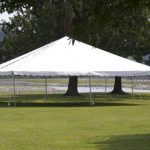



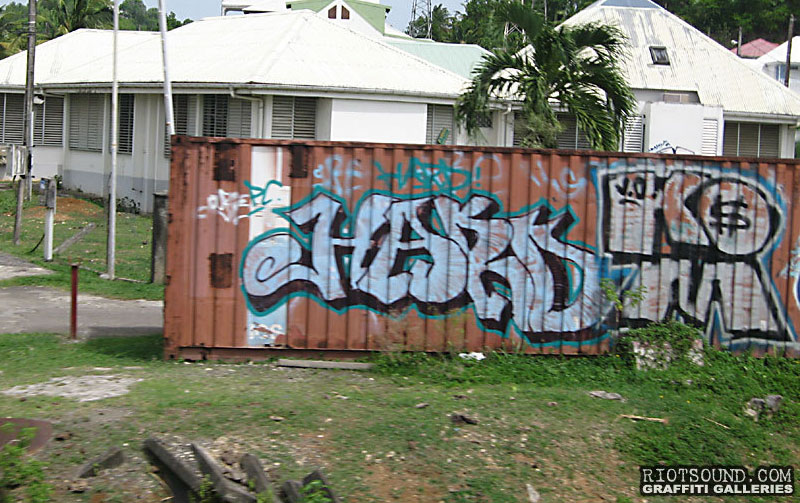
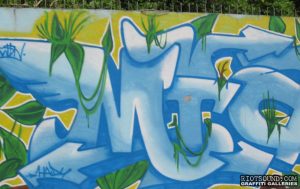
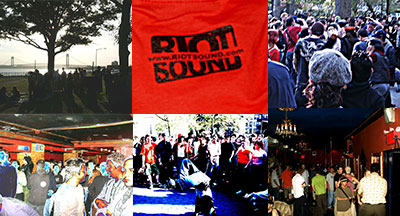
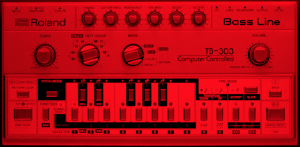














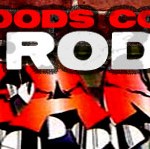
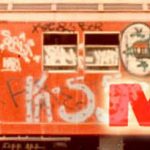

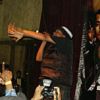
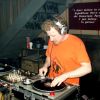

Comments